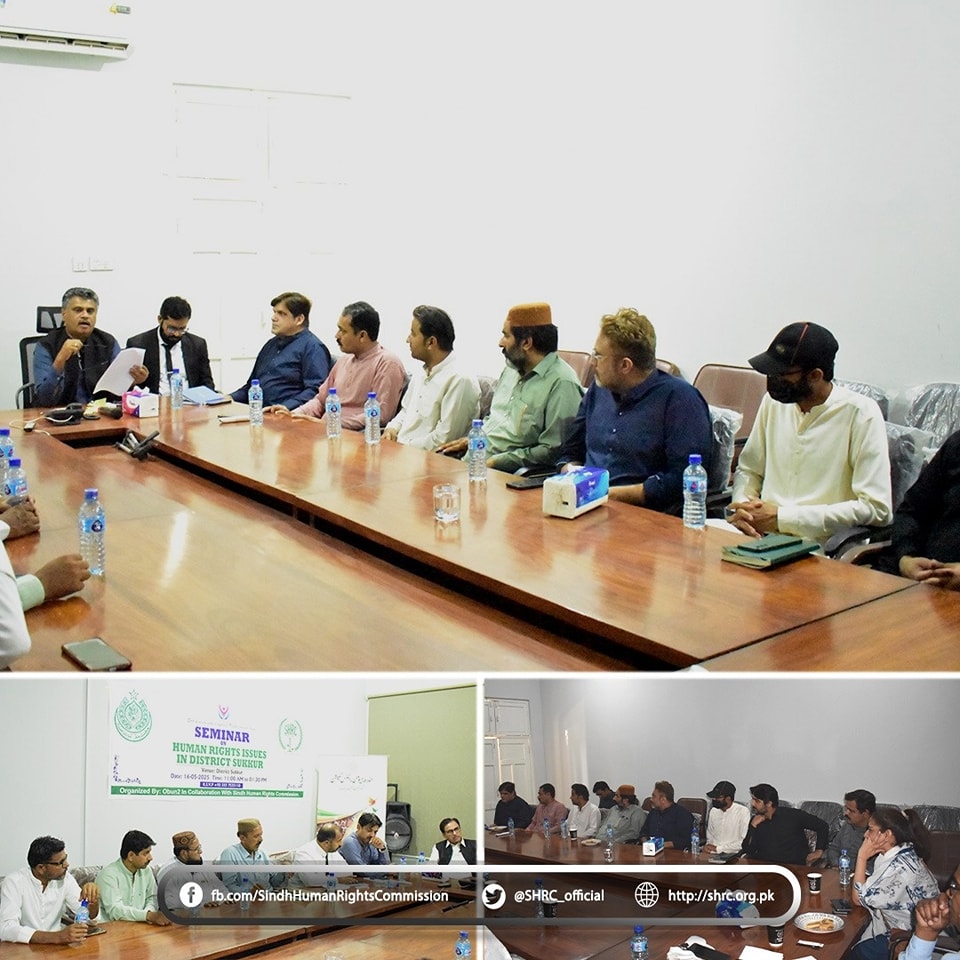


SHRC organised Seminar on Grassroots socio-economic issues & Human Rights Challenges in Sukkur.
The Sindh Human Rights Commission (SHRC) hosted the seminar under the Chairperson Mr. Iqbal Ahmed Detho and Judicial Member Mr. Mir Safdar Talpur, in Sukkur to address and assess the ongoing human rights challenges in the district. The event was attended by 45 participants, representing diverse communities including civil society members, religious minorities, human rights defenders, and media personnel.
The seminar served as a vital platform for raising and discussing critical human rights concerns emerging from the grassroots level. Participants actively engaged in identifying the pressing issues confronting the district’s marginalized and vulnerable populations. Chairperson SHRC Mr. Detho emphasized the Commission’s unwavering commitment to addressing these concerns within its legal mandate and constitutional obligations . He highlighted the proactive steps taken by SHRC to ensure the protection of rights, which include regular field visits to hospitals & Schools,public complaint redress mechanisms, institutional advocacy for establishment of Women & Children Police Station, Establishment of old age home ,Remand home for Juvenile offenders and policy recommendations to government authorities for implementation of laws regarding woman agriculture workers and Woman & Child Protection mechanisms . He also underlined that these efforts will help visible and meaningful results for the communities in Sukkur District.
During the interactive session, participants highlighted a range of serious issues including gender-based violence, child marriage, and discrimination against women and minorities , non functioning of schools and shortages of medicine in hospitals . Other concerns discussed included police mistreatment , illegal detentions, child labor, bonded labor issues , lack of access to quality education and healthcare, environmental degradation, denial of inheritance and documentation rights for woman , and the existence of illegal jirga systems that undermine formal justice. These challenges were described as systemic, rooted in socio-cultural norms, institutional weaknesses, and gaps in legal enforcement.
Judicial Member Mr. Talpur expressed appreciation for the community’s involvement and assured continued engagement from SHRC. He reaffirmed the Commission’s role in monitoring violations, providing legal assistance, and ensuring accountability through lawful means. The seminar concluded with a strong message of solidarity and a shared vision for building a more just, inclusive, and rights-based society through collective effort.